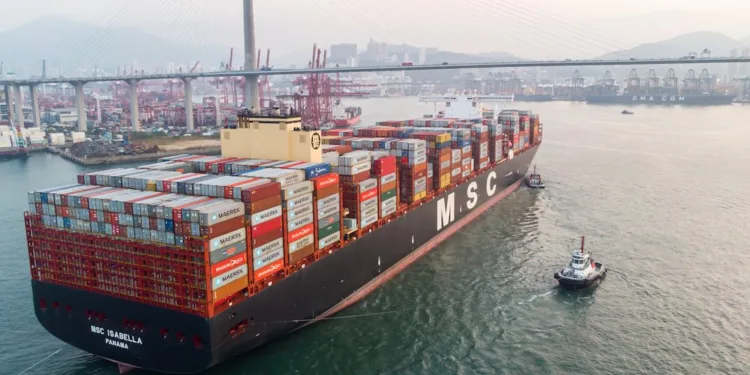Several significant trends and forecasts led Splash coverage this week, from substantial expansion of container handling capacity to warnings that the overall global shipping environment is entering a period of fragile growth marked by geopolitical uncertainty, rising environmental compliance costs, and challenges like port congestion and the need for digital security.
The United Nations Conference on Trade and Development (UNCTAD) has warned that global shipping is entering a period of fragile growth, with geopolitical tensions, protectionist trade measures, and rising compliance costs reshaping the sector. The 2025 Review of Maritime Transport notes that seaborne trade volumes are expected to barely rise this year, with risks concentrated around key choke points such as the Strait of Hormuz. Competition for critical minerals is also emerging as a new flashpoint for global trade.
At the same time, container handling capacity is on course for its largest annual expansion since the global financial crisis. Drewry projects an additional 64m TEU of port capacity this year, a 4.8% jump, reflecting investment triggered by the post-pandemic congestion surge. PSA International retains its crown as the world’s largest terminal operator, though carriers such as MSC, CMA CGM and Hapag-Lloyd have expanded their terminal portfolios through acquisitions.
Despite fears of a collapse, container trade is undergoing a rearrangement rather than a contraction. US tariffs have pushed imports from China down 11% year-on-year in August, while European exports to the US have overtaken Chinese volumes in both value and tonnage. Box rates from Europe to the US have climbed above $2,200 per feu, while China has sought to diversify exports toward Europe and strengthen trade links with India.
Fleet ownership rankings also reflect shifting market dynamics. Mediterranean Shipping Co (MSC) has expanded its fleet by nearly 9m dwt over the past year, overtaking Bank of Communications Leasing to become the world’s second-largest owner by tonnage. Several Chinese lessors, including ICBC and Minsheng, have slipped in the rankings amid political headwinds, while Iran’s NITC dropped from 19th to 25th place following sanctions-related disposals.
Amid these changes, technological and environmental transitions continue to gather pace. New methanol-hydrogen prototypes, AI navigation trials, and LNG carrier deliveries signal momentum toward decarbonisation and digitalisation, even as only 8% of the fleet is currently fuel-flexible.
For shipping professionals tracking these developments, access to reliable analysis is becoming increasingly important. In a move welcomed by many in the industry, Splash has dropped the paywall on its monthly deep-dive title, Splash Extra. The decision makes the publication’s market insights, data and sector commentary freely available to all readers at a time when clarity on shipping’s direction has rarely been more valuable.
To gain greater insights into this week’s forecasts on uncertainty, growth, and geopolitics, check out the latest edition of the Splash Wrap podcast below.















